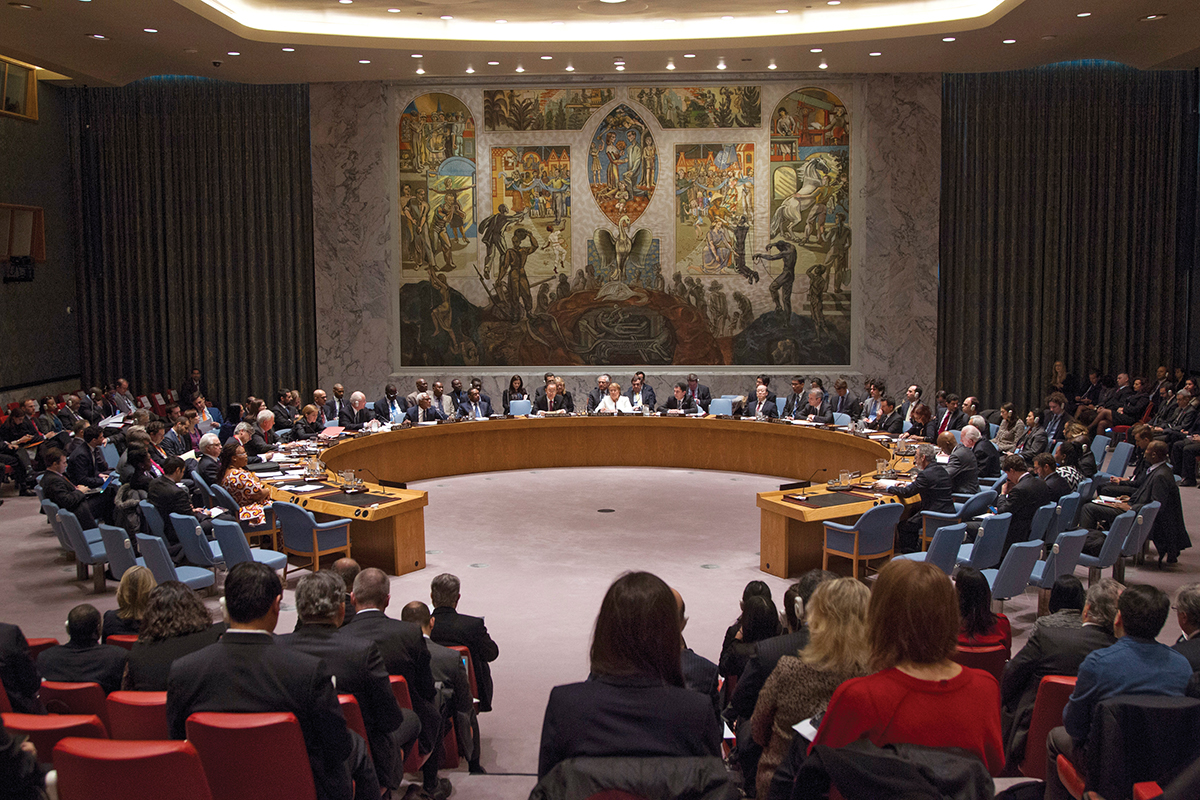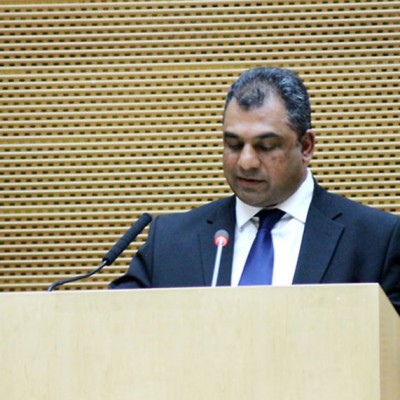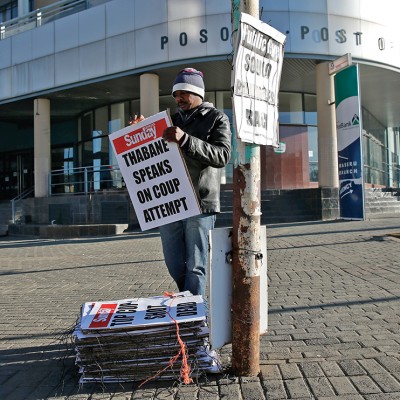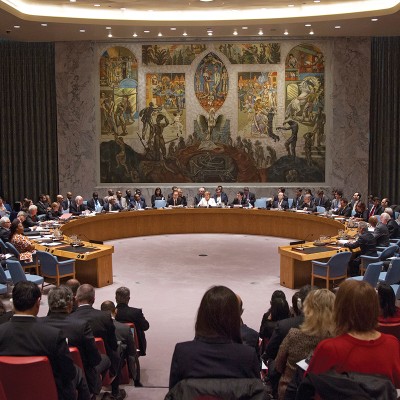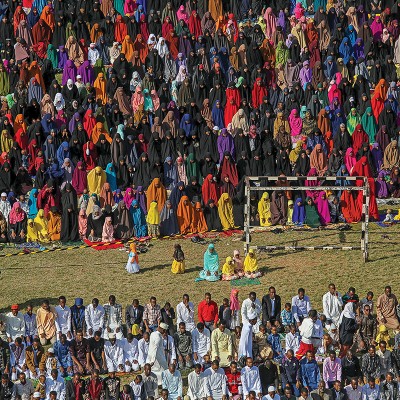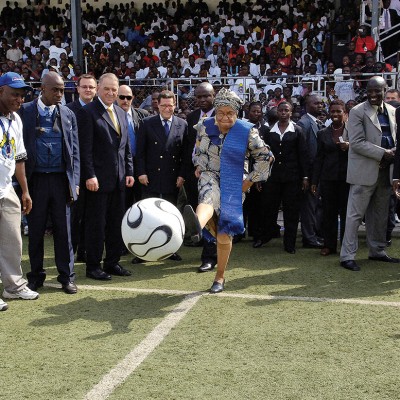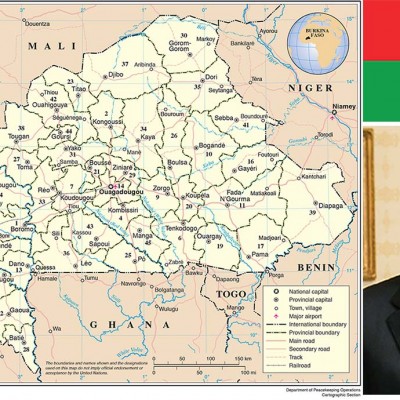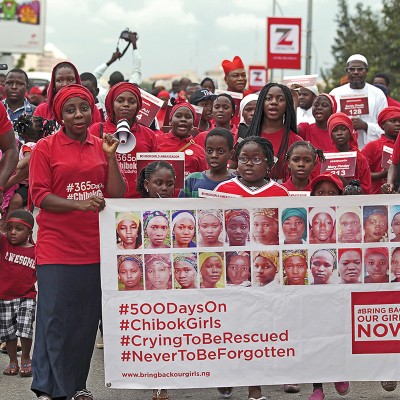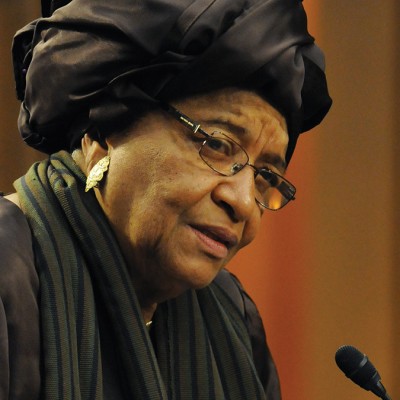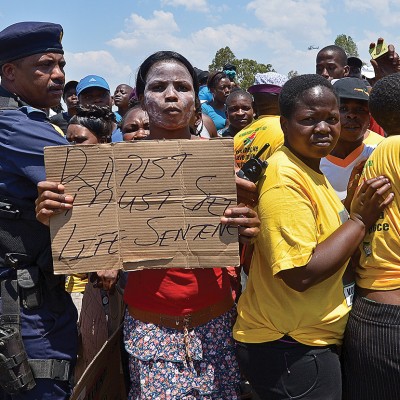The decades that followed the end of the cold war were marked by a significant increase in instability on the African continent. Especially after 2010, there has been an increase in social violence, violence around elections and terrorist activities. Recent examples of such instability include the crisis around the elections in Burundi, activities of the Boko Haram extremist group in Nigeria, violence in South Sudan, and attacks in the northern Sinai region in Egypt.
Statistics presented by the United Nations Development Programme (UNDP) show that the majority of African countries are holders of the lowest human development indexes.1 Data provided by the Uppsala Conflict Data Program (UCDP) indicates that Africa is the continent with the highest concentration of conflicts or wars.2
The African Union (AU) has been a fundamental actor in the enforcement of peace and security in the region. However, the challenges posed by the lack of regional capacity limits the AU’s ability to deliver effective and concrete conflict resolution. One of the recent examples of this was the crisis in Mali, in 2012, when the regional organisations – the Economic Community of Western African States (ECOWAS) and the AU – were unable to deal with the complexity of the conflict and appealed for help from the United Nations (UN) and the North Atlantic Treaty Organization (NATO).
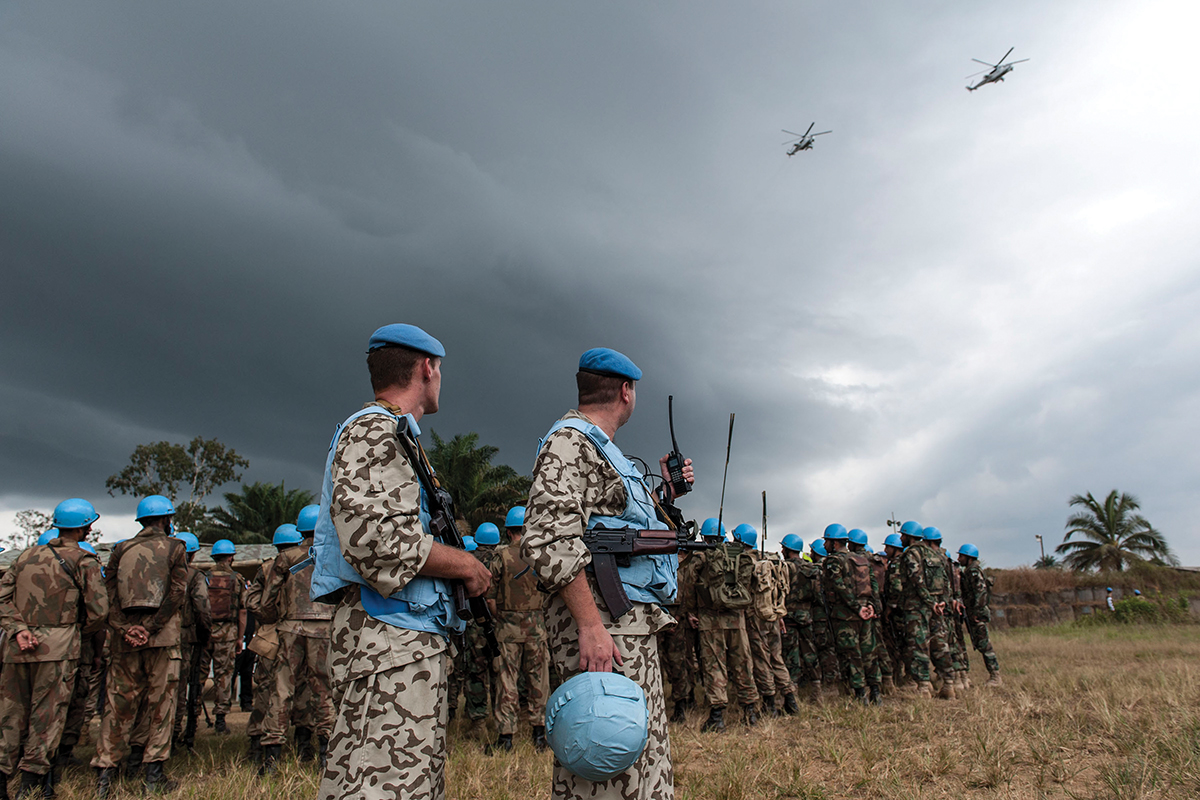
Given the pressing need for conflict resolution on the African continent, there is a demand for more effective engagement between Africa and international organisations such as the UN, especially the UN Security Council (UNSC). But how effective can engagement be between a continent that is subject to so many conflicts and resolutions and a council where these countries have so little power?
Africa and the Reform Debates
When we think about conflict resolution in Africa, it is impossible to disassociate it from peace operations, largely concentrated on the continent3 and implemented by the UNSC. During recent decades, Africa has been the main topic dealt with by the UNSC. Interaction between Africa and the UN’s main decision-making forum is currently vital for addressing and resolving conflicts on the continent.
Although most of the UNSC’s resolutions in the last 10 years (2004–2014) were on African issues and 53% of 678 resolutions related to African topics,4 the group of 54 African UN members is still not fully represented in the UNSC. Since the first years of the UN, the African and Asian continents have not received endorsement from the permanent five members5 for non-permanent seat elections, and have had minimal opportunities to play a prominent role in the UN. After the one and only expansion of the UNSC with Resolution 1991A, in 1963, the British Commonwealth became non-existent and the Middle East was added to the new group of five seats designated to African and Asian countries. Western Europe also received a new seat, while Latin America and Eastern Europe kept the same number of positions. But even an expanded UNSC did not establish a proper representation of the UN membership after its incredible growth, especially after the 1970s.
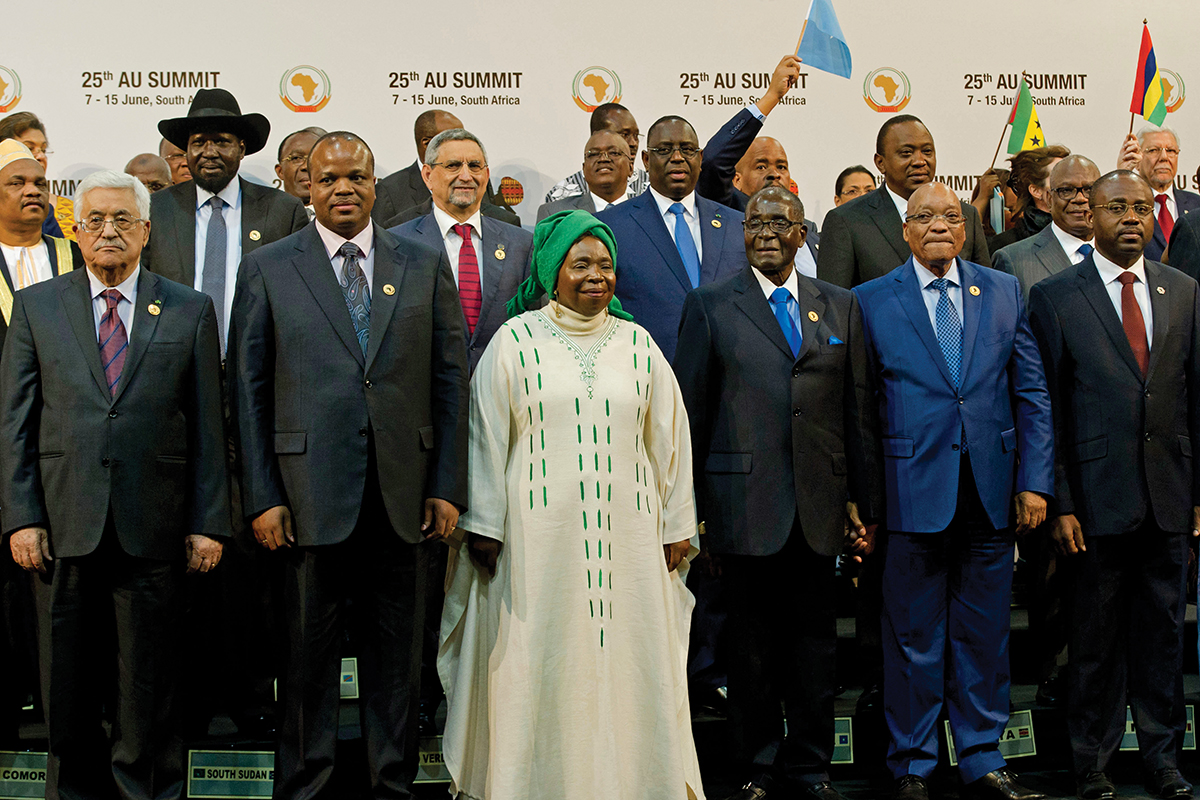
Africa and Asia, after the increase in total membership, represented more than half the complete number of countries recognised by the UN. This discrepancy was so great that it was commonly agreed that there ought to be a more balanced regional distribution of members. As Simon Chesterman affirmed: “[I]n addition to the perennial problems of dysfunctional institutions, inadequate resources, and ephemeral political will, the [UN] has always faced crises of expectations.”6
In 1992, the agenda topic, entitled ‘Question of equitable representation on and increase in the membership of the Security Council and related matters’, started an official process of debates on the issue of reforming the UNSC. Debates on this matter were opened to all members of the UN and, as soon as the discussions started in 1993, an Open-ended Working Group was created with the objective of formulating solutions to the crisis of representation in the UNSC.
Multilateralism is one of the strongest characteristics of the UN, and the variety of positions took the organisation to an ‘infinite debate’ on establishing the fairest representation in the UNSC. Therefore, despite the agreement reached on the need for reform and expansion of the UNSC, many important questions remained unsolved following these 20 years of discussions.
During recent years, the debate assumed another political level with the establishment of the Intergovernmental Negotiations for UNSC Reform, despite the fact that there was no agreement regarding the way the Council should be expanded. There are many points of disagreement but few points of agreement on this matter. Categories of membership, number of new seats, voting power and distribution of seats are the main issues that have been discussed tirelessly by members over the years. However, the General Assembly is not close to establishing a satisfactory solution to this crisis of representation.
The decision-making processes in the UN are predominantly influenced by the formation of groups. Most of the time, these groups are formed by regions or like-minded countries, united by similar objectives and interests. Particularly in cases such as the reform of the UNSC, the strength represented by these groups is very significant. The formation of groups is especially decisive in situations in which more than one-third of the vote by member states is required.
Members of the African group – except for the founders Egypt, Ethiopia and the former Union of South Africa – gained UN membership from 1955, and the continent has been represented in the UN as a region since 1963, with the creation of the Organization of Africa Unity (OAU). However, its replacement in 2001 by the AU was a turning point in terms of UNSC reform. Like its predecessor, the AU assumed the responsibility of pursuing Africa’s interests in all matters, and has continued to seek reform of the Council and better representation of African states. During the first decade of the 21st century, the AU was an important and active participant in the reform and representation debates.
The AU presented a reform proposal in 2005, which was based on a document signed by its entire membership, as an African common position. The Ezulwini Consensus, named after the valley in Swaziland where the agreement was made, brought to the table several specific transformations considered by Africa as key issues in the UN system. However, the proposals on a new structure of the UNSC were highlighted by the countries, as they sought a stronger voice for Africa and its fair representation in UN decision-making processes.
Support for African Claims
Three main agreements were reached during the discussions on reform of the UNSC: the question of equal representation, in numerical and geographical aspects; the question of effectiveness of UNSC actions, generated by a combination between equality and transparency; and, finally, the question related to improving working methods through the implementation of new procedures involving all the membership and UNSC activity. However, the most significant topics – such as categories of membership, eligibility, number of seats, system of rotation and the so-called veto power – resulted in the debate’s deadlock.
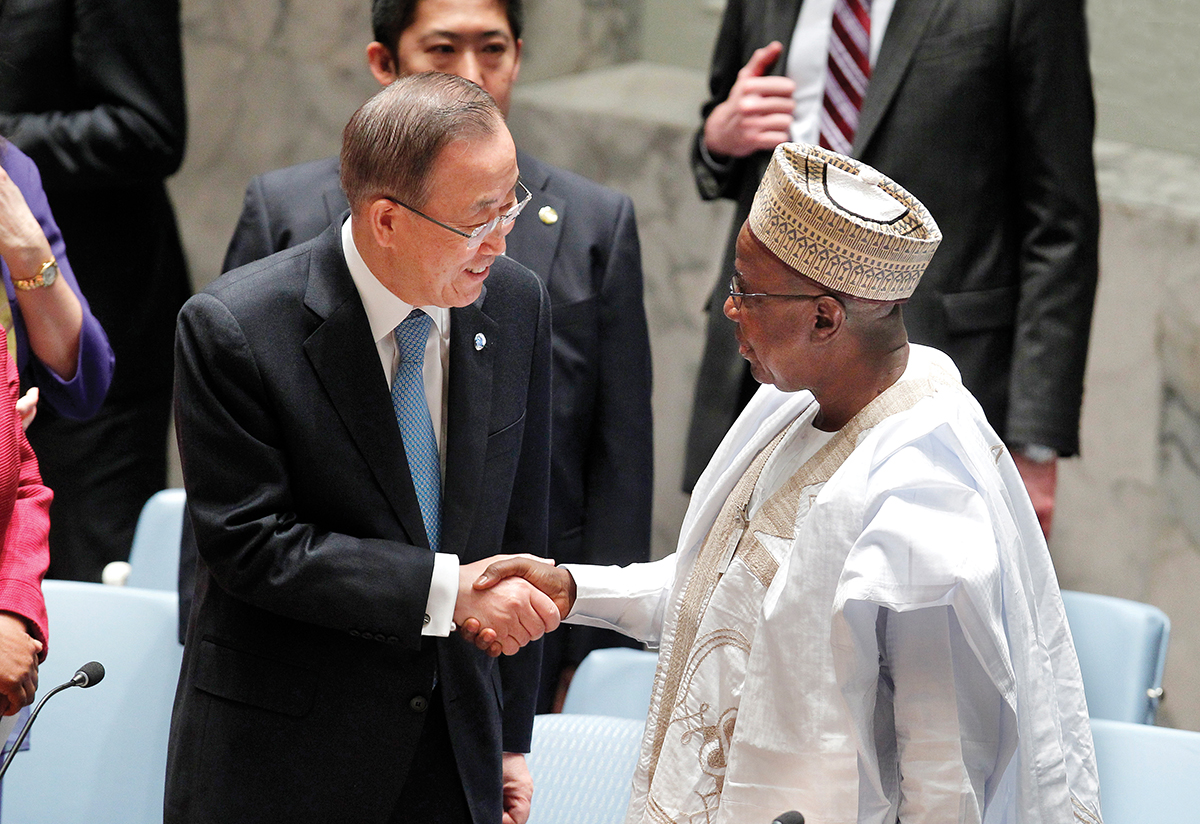
The proposal by the AU for the expansion of the UNSC was presented on 18 July 2005, during the 59th session of the General Assembly. The 43 signatories stated that they were “[m]indful of the need to ensure Africa, like all the other regions of the world, effective representation at the Security Council”.7
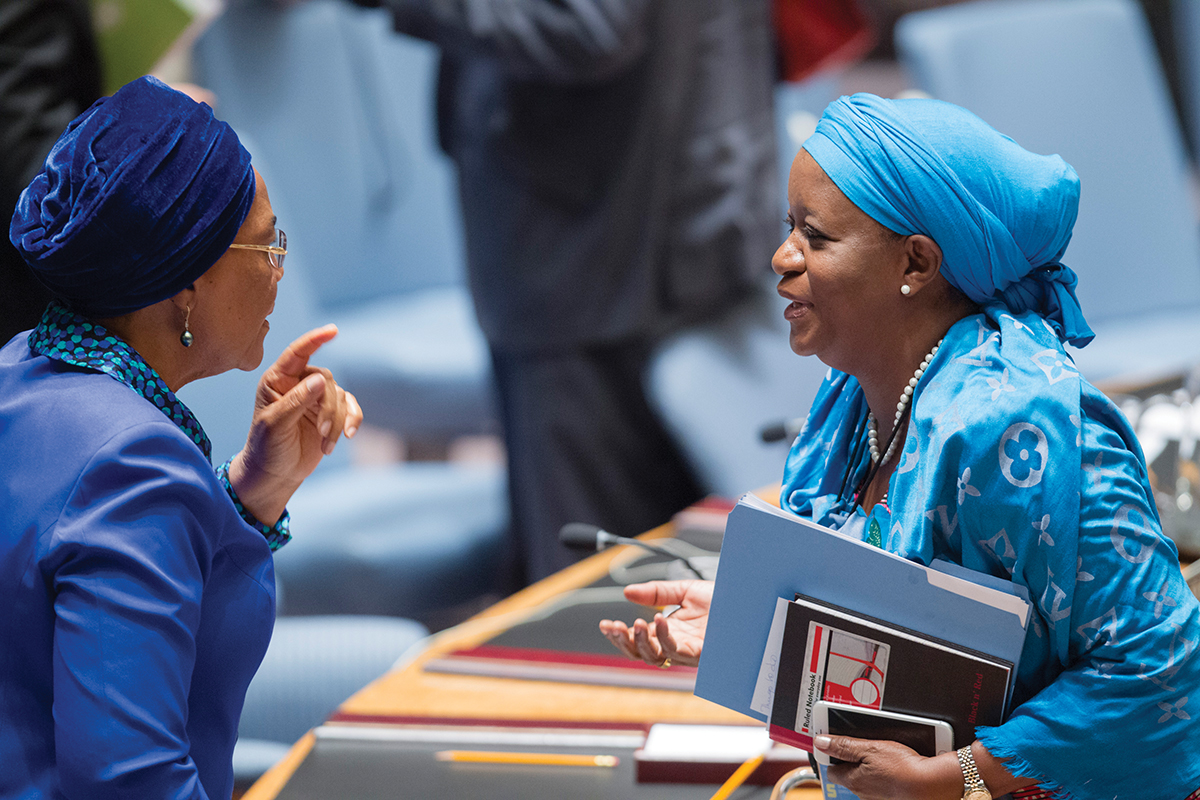
The main topics of the African proposal on the expansion of the UNSC involved quantitative and qualitative issues, considering categories, characteristics and number of seats. The group called for a complete reform that would improve representation in the UNSC and its working methods, and positively amend the UN Charter. According to the AU draft, the UNSC must be enlarged in both existing categories of seats, and all the rights attributed to the current permanent members must also be granted to new permanent seats, including the right of veto. The proposal consists of an expansion of 11 additional seats, creating two permanent and two non-permanent seats for Africa; one non-permanent seat for Eastern Europe; one permanent and one non-permanent seat for Latin America and the Caribbean; and one permanent seat for Western Europe and other states.
The advantage of being a large regional group gave the African position a significant lead, with wide support. While the African position was supported by an entire region from the beginning of the debates, the same could not be said of the other two main groups that presented draft resolutions in 2005: the Group of Four (G4) and the Uniting for Consensus (UfC).8
It is important to highlight that voting results are the clearest indication of support by different members of the UN, but in the case of the UNSC reform, a vote was not taken. In the absence of indicators of actual support that would have been seen in voting patterns, the best alternative is the expressions of support seen in the statements in the General Assembly. Although the Open-ended Working Group and the current Intergovernmental Negotiations on the question of equitable representation in the UNSC conducted and conducts work on the proposals and possible solutions for the matter at hand, the open debates on the UN General Assembly serve as a forum for broader expressions of intention by member states. The records of these statements are available in the form of the so-called verbatim records of its meetings. These records are, in fact, in the case of the reform debates, the only official sources for a somewhat reliable measurement of how the expansion ideas are addressed by the UN membership, at least in public.
The representation of African countries – already a regional group before the presentation of its reform proposal – was the only coalition that was mentioned during the early years of the debates. The so-called ‘African position’ was known since the beginning of the discussions in 1993. The AU presented its official proposal in 2005, but the informal levels of support for its ideas existed before that. In 1998, with the ‘Razali Plan’9 and the notions of a possible momentum for a reform at the time, the African position received the highest percentage of mentions, with support from about 24% of participants. With rare exceptions, levels of support for the African group were never lower than 10% of the participating countries – not omitting the number of members in the group that have always given strong support to the claims. Yet, even at the highest points of support, the levels were never enough to suggest approval would be possible in a vote at the General Assembly.10
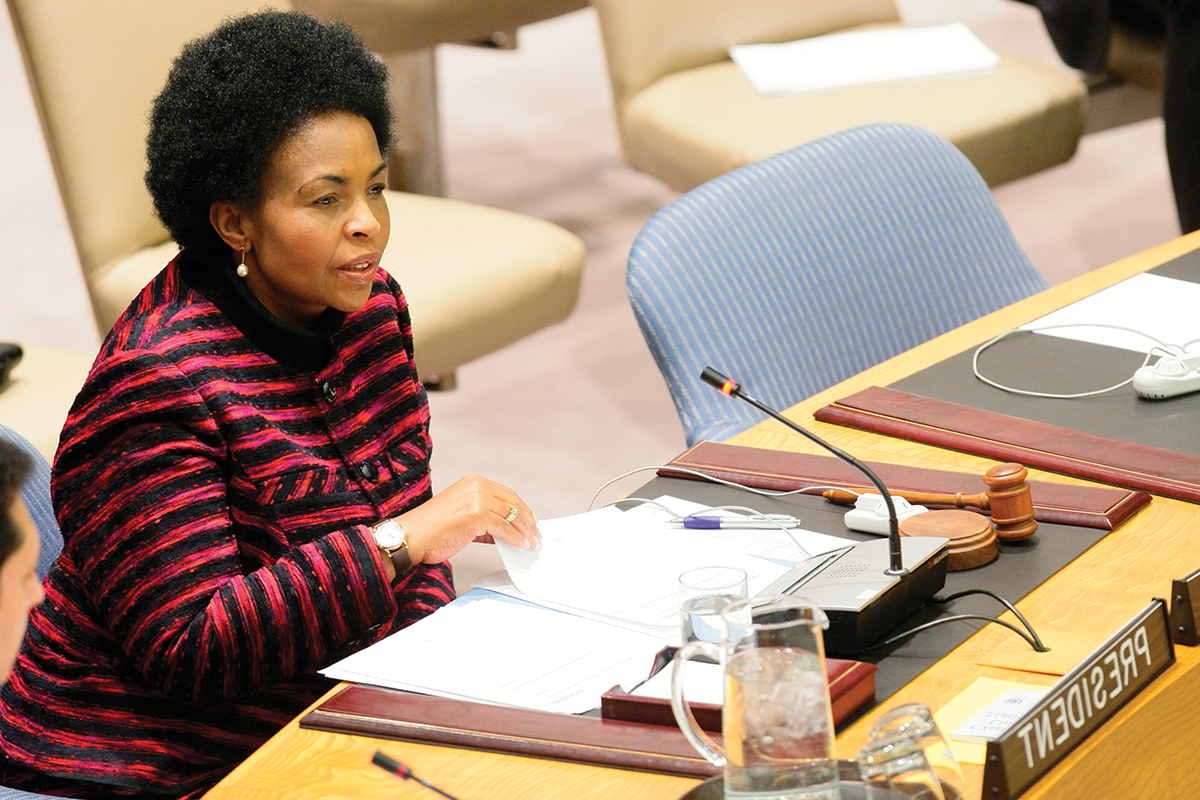
Comparing the levels of support among different groups related to the reform between 1993 and 2012, initially the AU and the G4 received strong support during the debates. In a different manner, the UfC started with low levels of positive feedback from other missions, but was able to acquire more support by 2012. But, in any case, the percentage of support received by each of the groups was never enough to reach the needed majority of the General Assembly. Thus, if we can consider the percentage of expressions of support received from the countries that participated in the discussions on an equitable representation inside the UNSC as a proxy for real support, it can be said that none of the reform packages presented was ever even close to being adopted.
The last years (2013–2014), however, showed very positive support numbers to the African position. This was because, strategically, most of the groups and countries started to see the African group as a strong ally and one of the biggest causes of the reform process’s standstill.
The AU members have always been very strict on the parameters established by the African common position. From the very beginning of the African representation to the current AU activity in the debates, the countries have been emphatic in stating that no solution other than the one presented by the Ezulwini Consensus will be accepted. This could be perceived as an attempt to spoil the reform process, if it was not for the real interest of Africa to assume a more decisive position in the UNSC.
The majority of UN member states involved in the reform debates realised that without the support of the 54 African countries, an expansion of the UNSC would be even more difficult than it is now. In 2013, alleged support for the African position had a growth of almost 10% when compared to the 17% of support on the former year’s statements – reaching total support of little less than 26%. In 2014, this support growth was even more significant, reaching a little more than 35% of the year’s statements.11
However, highlighting the words of the representative of South Africa, Maite Nkoana-Mashabane, in 2013:
Most Member States support the legitimate claim of Africans for representation in the permanent category. However, we are concerned that such claims of support have not been translated into concrete actions of support for early reform. It is far-fetched to think that reform is only for the benefit of Africa. Therefore, expressions of support should be located within the broad context of comprehensive reform; otherwise, such support is meaningless.12
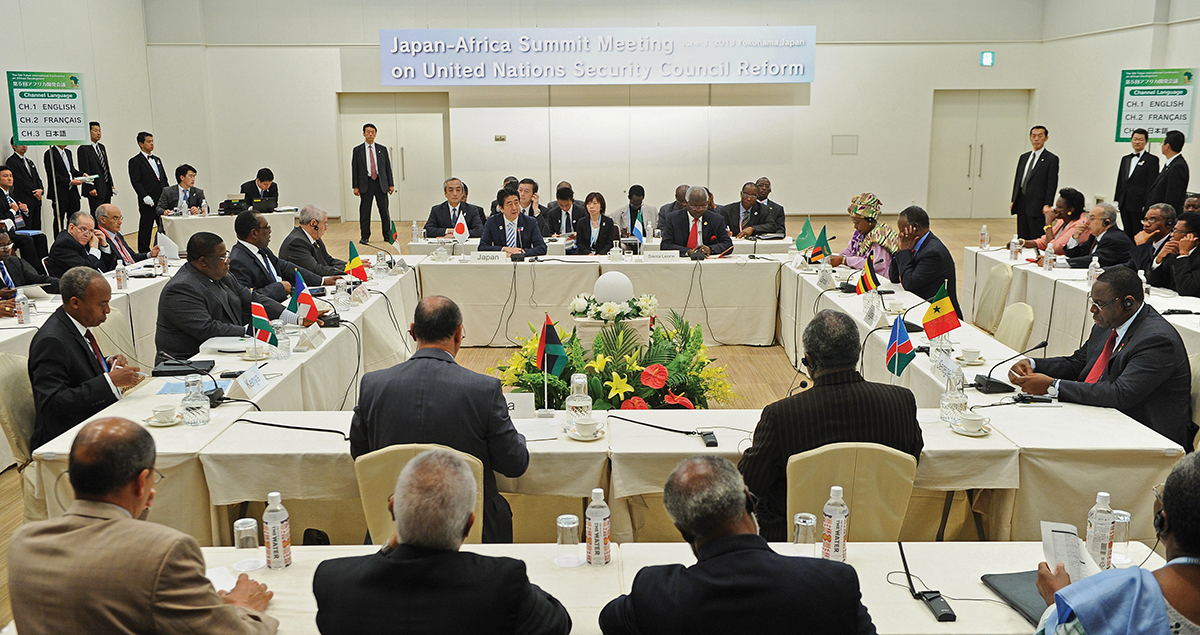
Other challenges must be overcome to give Africa an opportunity to achieve the desired position in the UNSC. The common position established by African countries hides some fissures in the continent’s unity, as not all the members are able to agree on important details of UNSC reform.
What are the Chances Now?
During the first half of 2015, the discussions about UNSC reform assumed a different approach. The debates were conducted by Jamaican representative Courtenay Rattray, Chair of the Intergovernmental Negotiations, and followed closely by the President of the General Assembly, Sam Kutesa. Ambassador Rattray asked the members to present their official positions and to start a new text for the negotiations.
In mid-May 2015, a new document was developed, stating the positions of some member states towards the reform. The so-called Framework Document had similarities to the document presented in 2011 by the former Chair of the Intergovernmental Negotiations – Afghani representative Zahir Tanin – and presented a summary of the stated positions. Officially, the document distributed to the members had 22 pages, but with the annexes of specific ‘inputs’ provided by countries, the entire document was 118 pages long.13
Despite the clear hard work in producing a concrete document about the reform negotiations, the final product did not show any significant change in positions by the members. In the case of Africa, the common position has not changed and the internal dissent remains extremely complex.
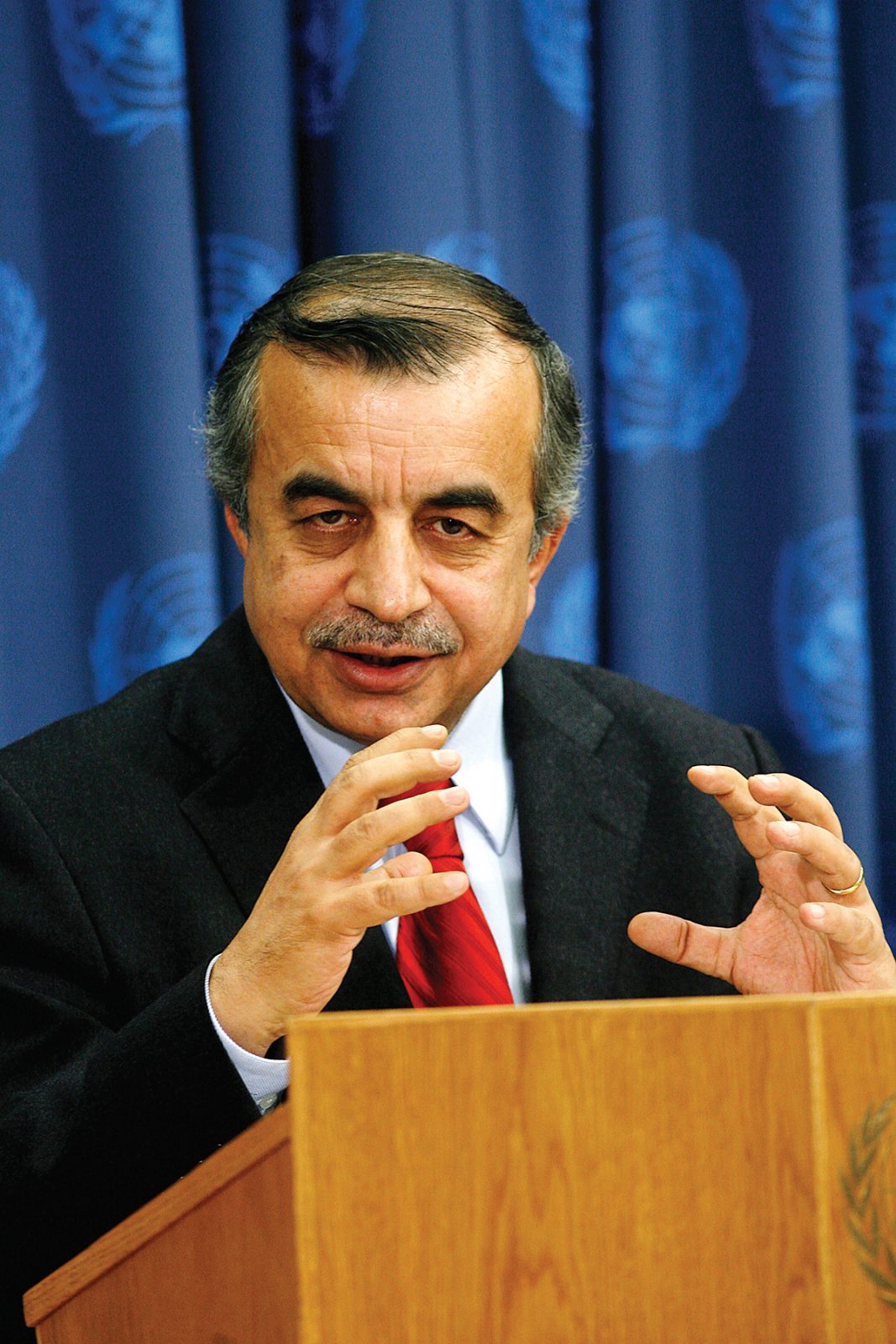
The inability to agree on countries with capacity to represent the region has been the main problem of the African group in terms of challenges related to reform. Some countries try to defuse the issue, saying that since resolution for a possible reform is not happening in the near future, there is no need to appoint the representative countries yet, but at the same time, the five African powers – Egypt, Nigeria, South Africa, Ethiopia and Kenya – present themselves as the most suitable candidates. While the discussion about which country should represent the group at the UNSC continues, other members have suggested different forms of representation, such as the establishment of a rotational form for permanent regional seats in the UNSC.
The complexity related to the reform of the UNSC has very unique characteristics. But, if we were able to isolate the African case from all the other complications related to the matter – including the Permanent 5 (P5), the group’s internal divisions, the strict character of the common position and the general lack of agreement among the UN membership at the General Assembly – it would be possible to say that Africa is the only group with the highest chances of achieving its objectives of reform. The high number of African UN members and the growing African group support among a significant majority of UN members (beyond just African countries), possibly gives Africa the key to the reform process.
Considering the current situation, it is vital to establish a concrete and productive engagement between Africa and the UNSC. The delay in solving and preventing conflicts has been a key factor in ongoing instability on the continent. It is important to highlight that the UNSC has already been very active on African matters, but it is also very important to consider that more prominent participation of the countries involved in these matters, at the decision-making level, could represent better cooperation between the parties and be more effective at conflict resolution.
The AU is aware of the importance of interaction between the region and the UNSC. However, a wide representation of Africa and its benefits for the region will not be possible without more diplomatic flexibility by the group and its members on the debates about UNSC reform.
Endnotes
- United Nations (2014) Human Development Report 2014. Sustaining Human Progress: Reducing Vulnerabilities and Building Resilience. New York: UNDP.
- Uppsala Conflict Data Program (2015) ‘UCDP Conflict Encyclopedia’, Available at: <http://www.ucdp.uu.se/database> [Accessed 6 July 2015].
- There are 16 current peacekeeping operations, of which nine are in Africa – this corresponds to 56% of the active operations. The operations are: the United Nations Mission for the Referendum in Western Sahara (MINURSO), from 1991; the United Nations Mission in Liberia (UNMIL), from 2003; the United Nations Operation in Côte d’Ivoire (UNOCI), from 2004; the United Nations/AU Mission in Darfur (UNAMID), from 2007; the United Nations Organisation Stabilisation Mission in the Democratic Republic of the Congo (MONUSCO), from 2010; the United Nations Interim Security Force for Abyei (UNISFA), from 2011; the United Nations Mission in the Republic of South Sudan (UNMISS), from 2011; the Multidimensional Integration Stabilisation Mission in Mali (MINUSMA), from 2013; and the United Nations Multidimensional Integrated Stabilisation Mission in the Central African Republic (MINUSCA). Information available at: <http://www.un.org/en/peacekeeping/>.
- The numbers presented in this section are results of the analysis of resolutions adopted by the UNSC. See the list of resolutions at the website: <http://www.un.org/en/sc/documents/resolutions/> [Accessed 9 August 2015].
- The five permanent members of the UNSC are: United States of America, United Kingdom, France, Russia and China.
- Chesterman, Simon (2006) Reforming the United Nations: Legitimacy, Effectiveness and Power after Iraq. Singapore Year Book of International Law and Contributors, 10, pp. 59–86.
- See the draft resolution at the letter number 67, from 18 July 2005 (A/59/L.67).
- Both groups were created as negotiation groups on the matter of the reform of the UNSC. The G4 is a coalition formed in 2004 by Brazil, Japan, India and Germany. They developed a reform proposal of enlarging the UNSC in both categories of seats, creating 10 new seats in the Council: two permanent and one non-permanent seat for Africa; two other permanent and one non-permanent seat for Asian countries; one non-permanent seat for Eastern Europe; one permanent and one non-permanent seat for Latin America and the Caribbean; and one permanent seat for Western Europe and other states. The UfC, formerly called the Coffee Club, is a group formed by like-minded countries that was created in the 1990s. According to the UfC proposal, the UNSC should be expanded to 10 elected seats, with six new seats for Africa; five for Asia; four for Latin America and the Caribbean; two for Eastern Europe; and three for Western Europe and other states.
- The ‘Razali Plan’ was an attempt a creating a timetable for the reform process, presented in 1997 by the Malaysian representative, Ambassador Ismail Razali. According to the plan, the General Assembly would initially vote on the expansion of the Security Council with five new permanent members and four elected seats. In a second stage, the Assembly would approve another resolution specifying the candidates to fill the new seats and, one week later, the members would vote on the two previous resolutions to be added as amendments to the Charter.
- da Silva, Marina Magalhães B.L. (2014) Spoiler or Reformer? The Uniting for Consensus Group and the UN Security Council Reform. Japan: Osaka University.
- The levels of possible support to the African position presented in this section are based on the analysis of official statements on the agenda topic: ‘Question of equitable representation on and increase in the membership of the Security Council and related matters’, between 2013 and 2014. See the records of the debates on the 46th, 47th, 48th and 49th plenary meetings of the 68th session of the UN General Assembly (UNGA), and also on the 49th and 50th meetings of the 69th session of the UNGA (A/68/PV.46; A/68/PV.47; A/68/PV.48; A/68/PV.49; A/69/PV.49; A/69/PV.50).
- See the records of the debates on the 48th plenary meeting of 8 November 2013, p. 23 (A/68/PV.48).
- UNGA (2015) <http://www.un.org/pga/wp-content/uploads/sites/3/2015/05/070515_security-council-reform-ign.pdf> [Accessed 6 July 2015].

